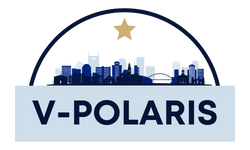Collaborating Groups
Vanderbilt Center for Population Science and Randomized Clinical Trials (V-POLARIS)

V-POLARIS leverages large population cohorts involving millions of participants with granular mechanistic studies to design and conduct clinical trials to improve human health locally and globally and to train the next generation of population scientists/clinical trialists. For the first 7 years, they were called the Vanderbilt Center for Clinical Cardiovascular Outcomes Research and Trials Evaluation (V-CREATE) team, lead by Dr. Matthew Freiberg. Since July of 2014, the V-CREATE team has received 10 new R01/U01 grants, a new P01 center grant, a new K12 training program and has published 97 manuscripts in journals such as Journal of the American Medical Association, British Medical Journal, Circulation, JAMA cardiology, Journal of the National Cancer Institute, American Journal of Respiratory and Critical Care Medicine, Lancet HIV, and Nature Medicine.
Vanderbilt-Ingram Cancer Center (VICC)

Vanderbilt-Ingram Cancer Center (VICC) is a leader in the prevention, diagnosis and treatment of cancer. The center's world-renowned team of experts provides an integrated, personalized and patient-centered approach to cancer care, including treatment, research, support, education and outreach. From a wide variety of wellness programs to a leading REACH for Survivorship Clinic, patients find support from diagnosis through survivorship. Vanderbilt-Ingram is a National Cancer Institute-designated Comprehensive Cancer Center, one of just two centers in Tennessee and 51 in the country to earn this highest distinction, and ranks in the top 10 nationwide for cancer research grant support.
Tennessee Center for AIDS Research (TN-CFAR)

The Tennessee Center for AIDS Research (TN-CFAR) leverages complementary strengths of its four partner institutions to have broad and substantial impact on the HIV epidemic. Located in Nashville, TN, our CFAR was established in 2015, under the leadership of Professor Simon Mallal. The partnership includes a research-intensive medical institution (Vanderbilt University Medical Center, VUMC), a historically black medical college (Meharry Medical College, MMC), an academically engaged state health department (Tennessee Department of Health, TDH), and a sophisticated HIV community-based organization (Nashville CARES). This partnership has fostered collaborations that would be unimaginable without CFAR.
Lung Cancer Screening (LCS)
Vanderbilt’s Lung Cancer Screening Program offers yearly lung screening computed tomography (CT) scans for patients who are at high risk of lung cancer because of age and/or smoking history. Early detection of lung cancer is the most powerful way to reduce the risk of illness or death from this disease. A lung screening CT scan can find lung cancer before symptoms develop and the cancer spreads.
Vanderbilt Technologies for Advanced Genomics (VANTAGE)
Vanderbilt Technologies for Advanced Genomics (VANTAGE) is a genomics core laboratory consolidation initiated by an $8.6 million ARRA funded NIH grant award to Vanderbilt University Medical Center, with an overall goal of creating a new collaborative [VANTAGE] shared resource that accelerates discovery in genome sciences and personalized medicine, providing state-of-the art research shared resource facilities and technology. VANTAGE is a one-stop genomics research resource, including: Illumina genotyping, DNA extraction and banking, Affymetrix–based genotyping and expression microarrays, Sanger sequencing and Next Generation Sequencing (NGS) among many other specialized services. These activities are now part of an overall structure that takes full advantage of their new physical co-location together with the Flow Cytometry Shared Resource in VANTAGE.
Eicosanoid Core Laboratory (Ginger L. Milne, Ph.D.)
Eicosanoid is an umbrella term used to describe any oxidized derivative of arachidonic acid, a ubiquitous polyunsaturated fatty acid (PUFA) in humans. Arachidonic acid can be oxidized in vivo via both enzymatic and non-enzymatic mechanisms to yield bioactive lipid mediators that are of central importance to human physiology and pathophysiology. The Eicosanoid Core Laboratory at Vanderbilt University was established in 1988 in order to provide investigators at the university with a central location for analysis of prostaglandins, leukotrienes, and isoprostanes. Today the Eicosanoid Core Laboratory serves investigators not only at Vanderbilt but indeed around the world.
Roden Lab (Dan Mark Roden, MD)
The Roden Lab has a strong tradition of translating research from the bedside to the bench and back again. The overarching theme of our research is how genomic variation affects variability in disease susceptibility and response to drug treatment. Our focus at the bench is on abnormalities of cardiac rhythm, and individual projects incorporate the expertise of the laboratory in mining electronic health records (EHRs) and in basic electrophysiologic methods, including the use of emerging medium and high-throughput approaches for functional genomics. Principal Investigator Dr. Dan Roden is a leading researcher in pharmacogenomics and personalized medicine. In addition to the active projects listed below, he directed Vanderbilt’s site in the NIH’s Pharmacogenetics Research Network (PGRN) and the American Heart Association’s Strategically Focused Atrial Fibrillation Research Network (AF-SFRN).
Vanderbilt Institute for Global Health (VIGH)
The Vanderbilt Institute for Global Health (VIGH) facilitates expanding and coordinating global health research, technical assistance, and training initiatives at Vanderbilt University Medical Center. It reflects the institution's commitment to improving health services and outcomes in resource-limited settings. Its "center-without-walls" philosophy nurtures collaborative trans-institutional partnerships among and within departments and schools on campus, including both VUMC and Vanderbilt University, and with partner institutions around the globe. VIGH strives to implement sustainable, scalable health and development programs in resource-limited settings through innovative multidisciplinary approaches rooted in strong academic research and training. Global partnerships are at the heart of this mission.
Vanderbilt Center for Addiction Research (VCAR)

Advancements made at the Vanderbilt Center for Addiction Research (VCAR) are instrumental in uncovering the intricate mechanisms underlying the development of addiction and substance use disorder in the brain. Research breakthroughs are actively contributing to the creation of effective treatments for individuals grappling with substance use disorder.
